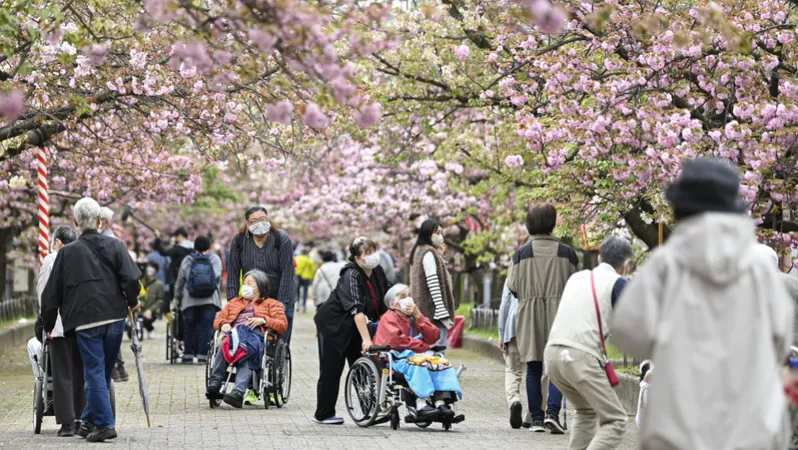
Are We Stuck at 100? New Study Reveals Lifespan Gains May Languish This Century!
2024-10-14
Author: Emma
Groundbreaking Study Highlights Slowed Lifespan Gains
A groundbreaking study has thrown cold water on hopes for significant increases in human lifespans over the 21st century. According to researchers from the University of Illinois and other institutions, published in the esteemed journal Nature Aging, life expectancy growth has notably slowed in some of the world’s longest-lived nations, including Japan, South Korea, and Switzerland.
Projection for Reaching 100 Years Old
The study indicates that by the end of this century, only about 15% of women and 5% of men are projected to reach the milestone of 100 years old. This is a stark contrast to the substantial life expectancy advancements seen in the 20th century, which were primarily driven by improvements in sanitation and healthcare that dramatically lowered infant mortality rates and improved health for older populations.
Analysis of Life Expectancy Data
Analyzing data from eight countries renowned for their longevity, researchers found an average increase of just 6.5 years in life expectancy from 1990 to 2019. While the increase was noticeably robust in the previous century, the trend seems to have plateaued over the last three decades, raising alarms about our biological limits.
Current Life Expectancy Figures
Current figures reveal that individuals born in 2019 can expect to live to about 88.68 years for women and 83.17 years for men. Additionally, the likelihood of reaching 100 years old stands at a mere 13.9% for women and 4.5% for men. To unlock a future where life expectancy could surge to an astounding 110 years, around 70% of women would need to survive to age 100. Such a scenario would necessitate the complete eradication of many leading causes of mortality today.
Challenges in Extending Life Expectancy
The researchers concluded, “Unless the processes of biological aging can be markedly slowed, radical human life extension is implausible in this century.” Indeed, this poses a significant challenge given our current understanding of aging mechanisms.
Current Statistics from Japan
Meanwhile, in Japan, which has the highest life expectancy worldwide, the Ministry of Health, Labor and Welfare reported that the average lifespan in 2023 is approximately 87.14 years for women and 81.09 years for men. Impressively, the number of centenarians in Japan has soared to an unprecedented 95,119, with females making up 88.3% of this remarkable cohort.
Looking Ahead: The Future of Lifespan Extension
Looking ahead, experts warn that unless there are breakthrough advancements in medical science and a deeper understanding of aging, the dream of extending human lifespans may remain out of our reach. Could this be the wake-up call society needs to innovate in healthcare, or will we inch along a path of stagnation? The evidence suggests we might be grappling with our biological limitations for years to come! Stay tuned as we monitor developments in longevity science and explore whether breakthroughs could shift these projections!









 Brasil (PT)
Brasil (PT)
 Canada (EN)
Canada (EN)
 Chile (ES)
Chile (ES)
 España (ES)
España (ES)
 France (FR)
France (FR)
 Hong Kong (EN)
Hong Kong (EN)
 Italia (IT)
Italia (IT)
 日本 (JA)
日本 (JA)
 Magyarország (HU)
Magyarország (HU)
 Norge (NO)
Norge (NO)
 Polska (PL)
Polska (PL)
 Schweiz (DE)
Schweiz (DE)
 Singapore (EN)
Singapore (EN)
 Sverige (SV)
Sverige (SV)
 Suomi (FI)
Suomi (FI)
 Türkiye (TR)
Türkiye (TR)